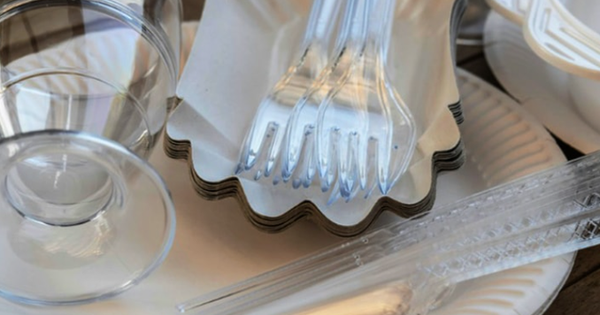EU Passes Law on reducing packaging waste and banning single-use plastics
The European Union (EU) has recently approved a law aimed at gradually reducing packaging waste of all materials including plastic, wood, iron, aluminum, glass, paper, and cardboard. The law sets specific targets for reducing waste: 5% by 2030, 10% by 2035, and 15% by 2040, compared to 2018 levels.
By 2030, all packaging used in the EU must be recyclable, with some exceptions. In cafes and restaurants, the use of single-use plastic products for retail purposes will be prohibited, but paper and cardboard packaging will still be allowed.
For the law to come into effect, it still needs to be approved by the European Parliament.
According to the European Statistical Agency, the EU produced 84 million tons of packaging waste in 2021, which is equivalent to 188.7 kg of waste per person. Without measures to address this, this waste is estimated to increase to 209 kg per person by 2030.
While lawmakers disagreed on a complete ban on single-use paper packaging and paper boxes in fast-food restaurants, a range of familiar waste products will soon be banned under an agreement they hope will reverse the increasing trend of packaging waste throughout the EU.
Fast-food restaurants will no longer serve food and drinks on-site in paper packaging and single-use plastic cups. However, after months of negotiations, lawmakers have agreed that the use of paper and cardboard can continue, significantly reducing the European Commission’s proposed total ban.
These restrictive measures are part of the newly agreed Packaging and Packaging Waste Regulation (PPWR), which sets specific targets for reducing the volume of packaging waste generated in the EU to 5% by 2030, currently around 190 kg per person.
The target will then increase to 10% by 2035 and 15% by 2040. To help meet these legal constraints, the legislation addresses excessive use of packaging materials, such as limiting the empty space in a box used for e-commerce transportation and delivery to 50%.
The takeaway food sector is also a target of these restrictive measures. From 2030, sandwich shops, kebab shops, pizza shops, and all businesses of this type must provide reusable packaging for at least 10% of their products, as well as allowing customers to bring their own containers without penalty.
The regulations should also put an end to the use of lightweight plastic bags, for example, at fruit and vegetable markets. The hotel, restaurant, and catering sector (Horeca) will face even more restrictive measures, such as a complete ban on plastic bags containing tomato sauce and coffee cream by 2030.
Travelers and business travelers will also notice the difference by then, with regulations banning mini shampoo and lotion bottles in most hotels, while packaging suitcases at airports will also be prohibited.
Governments must ensure the collection of at least 90% of plastic bottles and metal beverage cans by 2029 and implement a mandatory deposit refund system (DRS).
This new law is a significant step toward reducing packaging waste and promoting sustainable practices within the European Union. By setting specific targets and restrictions, the EU aims to create a cleaner and more environmentally friendly future for its citizens.

